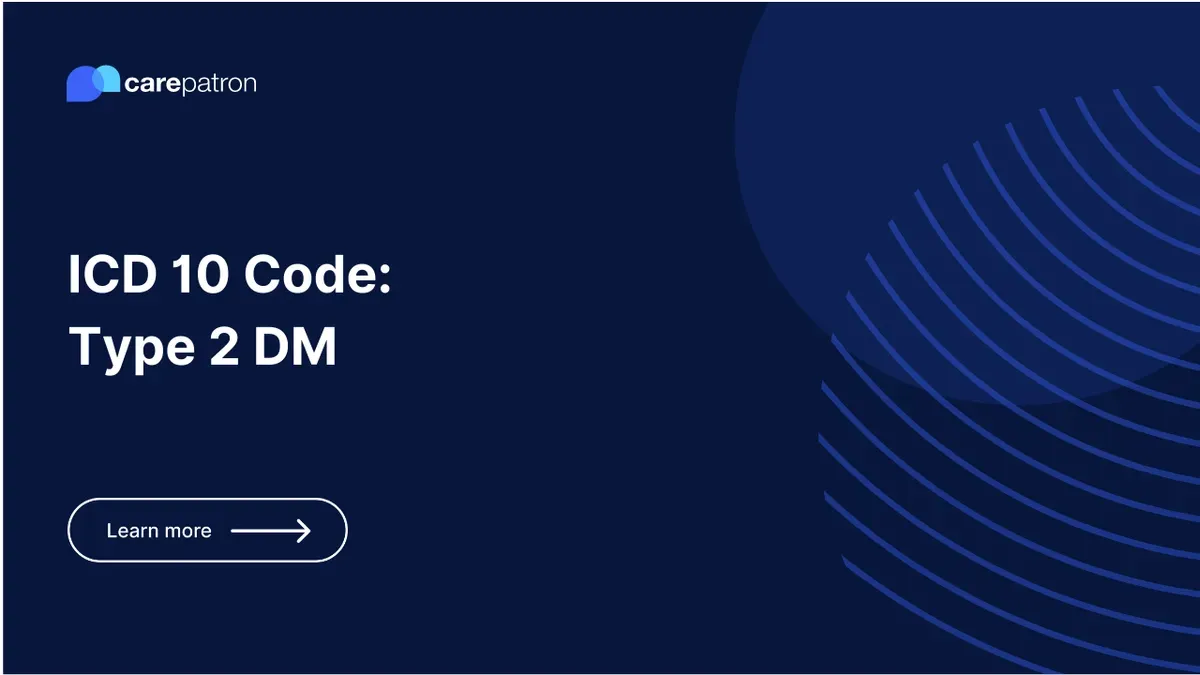
Type 2 DM ICD-10-CM Codes
Check out these CD-10 codes for Type 2 DM, essential for billing and classification. Learn about accurate coding for Type 2 diabetes mellitus now.
Use Code
Commonly asked questions
An ICD 10 code for DM type 2 should be used when submitting a claim for reimbursement related to the diagnosis of Type 2 DM. This code assists the insurance company in determining the appropriate level of reimbursement for the Type 2 DM diagnosis.
Yes, Type 2 DM diagnoses are billable, and the specific Type 2 DM ICD 10 code used is E11.9. This code indicates that the patient has Type 2 DM without any complications.
The common treatments for Type 2 DM include lifestyle changes like weight loss, adopting a healthy diet, and engaging in regular exercise. Additionally, oral medications such as metformin, sulfonylureas, thiazolidinediones, and insulin injections are common treatments.
EHR and practice management software
Get started for free
*No credit card required
Free
$0/usd
Unlimited clients
Telehealth
1GB of storage
Client portal text
Automated billing and online payments
